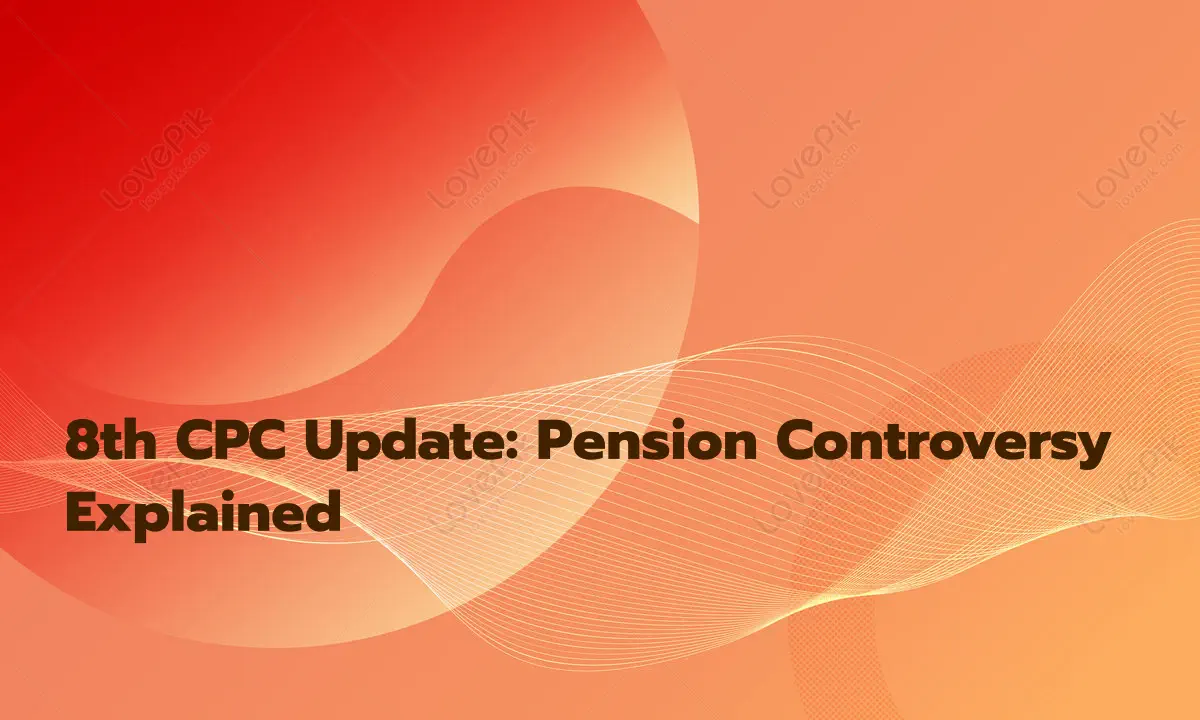Understanding the Controversy Surrounding Older Pensioners and the 8th Pay Commission in the Finance Bill

A recent debate over the Finance Bill 2025 has stirred uncertainty among central government pensioners, particularly those who retired before the anticipated 8th Pay Commission (CPC) takes effect. Speculation suggests that older pensioners might miss out on the commission’s benefits, a claim refuted by Finance Minister Nirmala Sitharaman. This article examines the issue, tracing its origins and clarifying the facts based on official statements and established practices.
Also read: Govt Assures Pension Parity Will Continue Despite Finance Bill Provision
Background: The 8th Pay Commission and Pension Parity
The 8th CPC, reportedly approved by the Union Cabinet in January 2025, aims to revise salaries, allowances, and pensions for central government employees and retirees, effective January 1, 2026. Historically, pay commissions—convened roughly every decade—adjust compensation to reflect economic realities. The 7th CPC, implemented in 2016, ensured pension parity between pre- and post-2016 retirees, a principle rooted in earlier commissions and reinforced by Supreme Court rulings like D.S. Nakara vs. Union of India (1983). As of March 1, 2025, approximately 36.57 lakh civilian employees and 33.91 lakh pensioners (as of December 31, 2024), alongside defense personnel, stand to be affected.
The Controversy: A Misinterpreted Amendment
The confusion stems from an amendment to the Central Civil Services (CCS) Pension Rules within the Finance Bill 2025, passed by the Lok Sabha. Critics, including the All India Trade Union Congress (AITUC) and Congress MP K.C. Venugopal, have suggested it excludes pensioners who retired before January 2026 from 8th CPC benefits. AITUC’s Amarjeet Kaur, quoted in The Hindu (March 28, 2025), called it a “betrayal of lakhs of pensioners,” while Venugopal, per The Hindu (March 25, 2025), hinted at a “hidden agenda.” Some media reports and X posts speculated that fiscal pressures—potentially exceeding Rs 1 lakh crore, akin to the 7th CPC’s FY17 cost—might drive this shift.
The Official Response
Finance Minister Sitharaman countered these claims in the Rajya Sabha on March 27, 2025, as reported by NDTV Profit and Moneycontrol. She affirmed that parity remains intact, stating, “Pensioners retiring before January 1, 2016, received benefits equivalent to post-2016 retirees under the 7th CPC, and this principle continues.” She clarified that the amendment refines procedural aspects, not entitlement, ensuring “no discrimination.” Earlier, on March 18, 2025 (Times Now), she told MPs Kangna Ranaut and Sajda Ahmed that the 8th CPC’s terms of reference would be set soon, with financial impacts assessed later.
The Facts Behind the Debate
The amendment’s intent, per The Financial Express (March 23, 2025), is to streamline pension calculations, not revoke parity. The 8th CPC’s report, due by late 2026 or early 2027, is expected to recommend adjustments for all pensioners, possibly with interim relief, mirroring past practices. Sitharaman’s stance aligns with judicial mandates and the government’s track record. Financially, while the 8th CPC will strain budgets, a phased rollout with 12 months’ arrears—standard since the 6th CPC—mitigates immediate pressure, per Moneycontrol (March 25, 2025).
Conclusion
No evidence in the Finance Bill or official policy supports the exclusion of older pensioners from the 8th CPC. The controversy likely arises from misinterpretations of technical amendments, amplified by speculation. Sitharaman’s assurances, backed by precedent, suggest all pensioners will benefit once recommendations are finalized—expected by April 2025 for terms of reference (Moneycontrol). Stakeholders should await official updates from the Finance Ministry, avoiding unverified claims.




